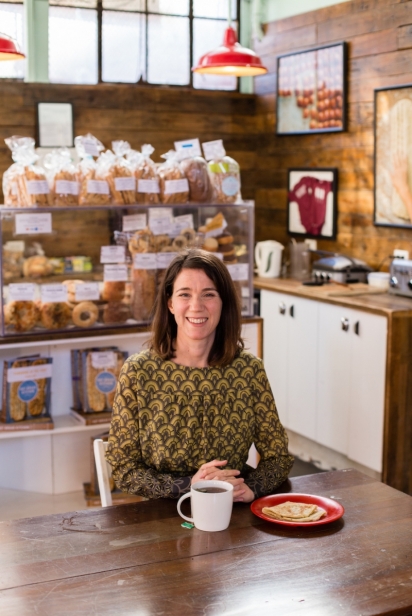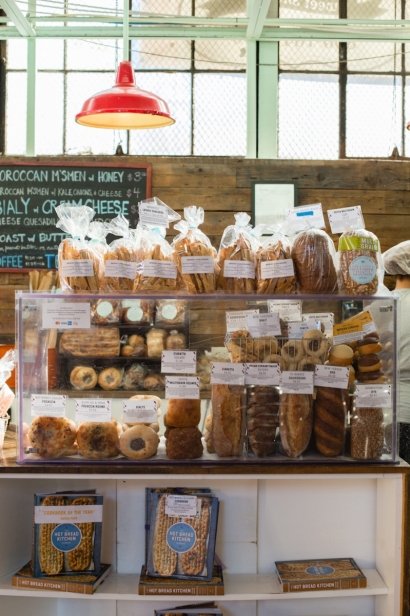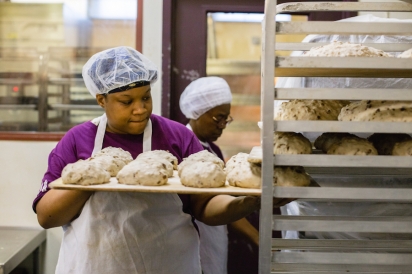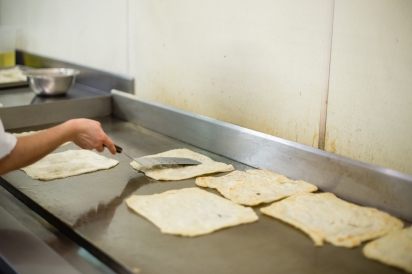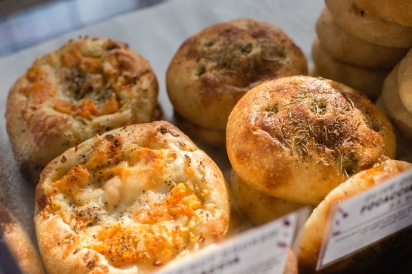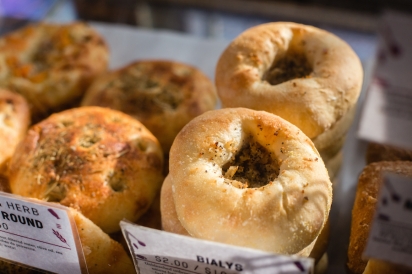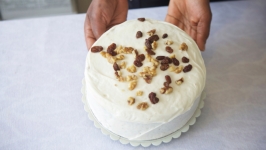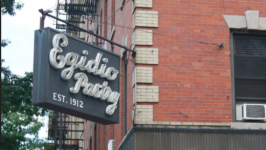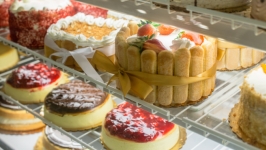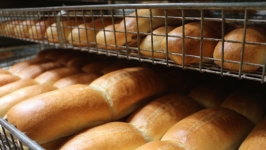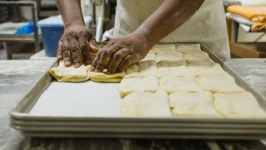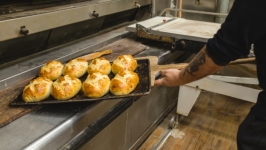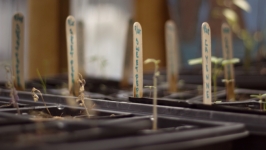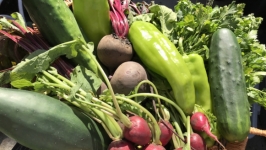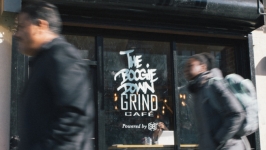Hot Bread Kitchen
In a cheerfully lit space in East Harlem, hope rises in tandem with the loaves of challah, rye and babka baking in the ovens. Hot Bread Kitchen, the nonprofit brainchild of Jessamyn Waldman Rodriguez, has, since its inception in 2008, taught economically disadvantaged women the skills necessary to succeed in the baking industry. At the same time, through its HBK Incubates program, it offers critical infrastructure, technical expertise, and space to start-up enterprises.
Hot Bread Kitchen is innovative in its multifaceted mission and approach. During the paid, six-month Bakers-in-Training program, women learn culinary and life skills through three weekly shifts in the bakery and additional time in the classroom. While each trainee perfects the techniques she’ll need in post-program placements ranging from Zaro’s Bakery to Whole Foods, Eataly, Amy’s Bread and others, often the classroom experiences are equally as important. Women attend classes ranging in focus from English as a second language to interpersonal and cross-cultural communication, financial management, and basic employment skills. The breadth of the classes is a testament to the thoughtfully curated attention given to each attendee. Sometimes, Hot Bread Kitchen signifies the first time a woman has received a paycheck, opened her own bank account or prepared for her first job interview. Hot Bread Kitchen is there to guide participants each step of the way.
Jessamyn, HBK’s founder and CEO, says the program’s strength resides in its graduates’ work ethic, readiness to learn and willingness to teach others. Bakers-in-Training looks for women who will be successful in the kitchen, women who, according to Jessamyn, “will get in front of a pile of flour and find comfort in it.” For many, this familiarity with flour began in childhood, in kitchens as nearby as Jackson Heights or as far away as Bangladesh.
The women who comprise the Bakers-in-Training program are anywhere from 18 to 60 years old and hail from Burkina Faso, Mexico, Morocco and 40 other countries, as well as much closer locales, such as the Bronx. Many have overcome incredible hurdles—homelessness, domestic violence, war, incarceration, poverty and shortened educations—to arrive where they are today. And yet, despite the differences in language and experience, when they gather in the kitchen, it’s a coming together over food. “People unite around bread,” Jessamyn explains. “We all share a love of food.”
In order to support its mission, Hot Bread Kitchen has established commercial relationships with businesses throughout New York City. Shoppers visiting Green Markets, Whole Foods, Chop't and various hotels will find Hot Bread Kitchen products in use or for sale. Hot Bread Kitchen has a standard line of products as well as specialty breads that change with the season. Grindstone rye is a popular winter favorite, for example, and for Valentine’s Day, the bakery sells a heart-shaped challah and a chocolate cherry roll. The purpose of this model is twofold, allowing bakers in training hands-on experience as well as generating much-needed program revenue.
Every culture has its staple bread, and every woman in the Bakers-in-Training program has an affinity to one or another particular bread. Maybe she grew up crafting corn masa tortillas or remembers sprinkling sesame seeds on barbari. Hot Bread Kitchen celebrates these traditional breads and the women who make them.
The bakery sells over 70 international types of bread, and over the years many program graduates have contributed their family recipes to this growing menu. There’s buttery Moroccan m’smen; a hand-stretched flatbread often served as an accompaniment to savory meals and the first global bread adopted by the bakery, and challah, a light egg bread served by Jewish families during Shabbat dinners.
In the case of m’smen, Jessamyn first had it from a street vendor while on a backpacking trip to Morocco. She returned to New York, desperate to find the flatbread here, but it wasn’t until she met Bouchra, a program attendee from Morocco, in 2009, that her wish came true. Bouchra taught Jessamyn to make m’smen, and since then, it has consistently been one of the bakery’s best sellers. It, and Bouchra’s story, are featured in The Hot Bread Kitchen Cookbook: Artisanal Baking from Around the World, published in collaboration with cookbook author Julia Turshen in 2015. The bakery’s Sephardic challah is a recipe from Jessamyn’s own family, a tribute to the bread Jessamyn and her mother made when she was growing up in rural Canada. Hot Bread produces various kinds of flatbread, including the eye-catching and palette-pleasing nan-e barbari and nan-e-qandi, both Persian recipes, along with Polish bialys, Albanian burek, Mexican concha cookies and more.
Each of these global breads celebrates the cultures these women have come from and the paths they have forged for themselves here. For the women of Hot Bread Kitchen, the past and the future, at least for a moment, reside side-by-side in a mound of flour atop a steel table, waiting to be shaped. The rest of us can’t wait to see what they mix up next.
Follow Hot Bread Kitchen on Instagram
1590 Park Ave, New York, NY



